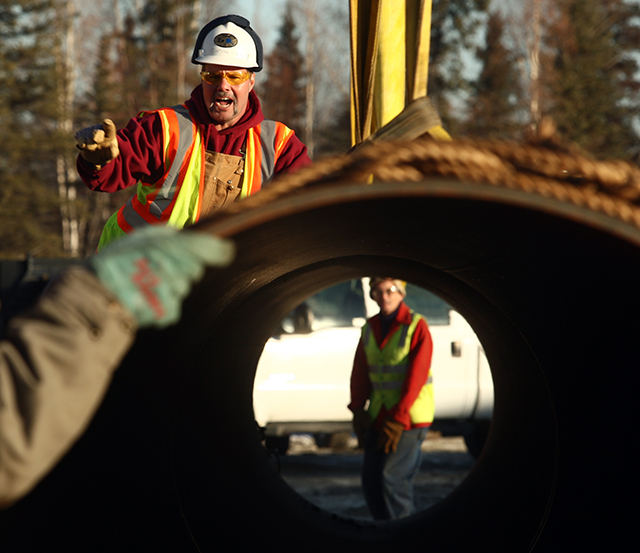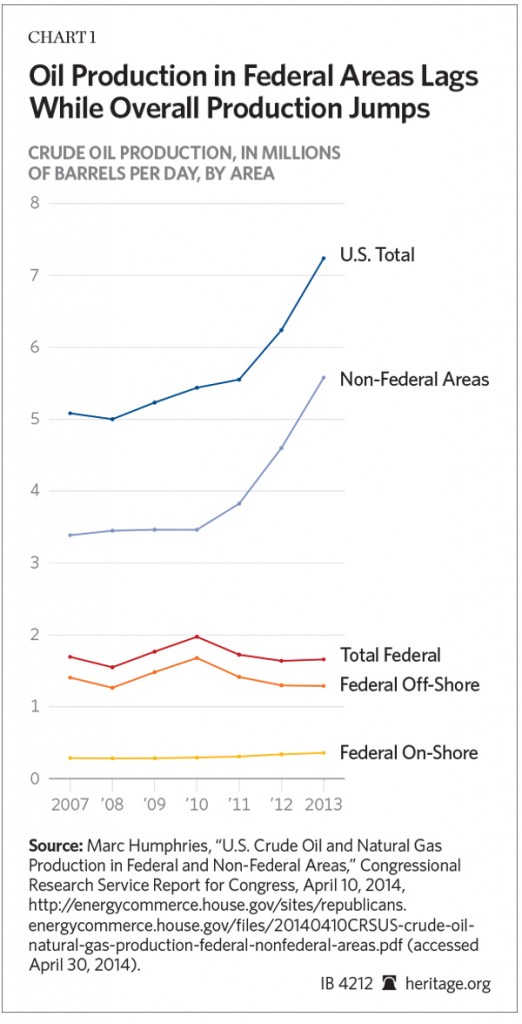Who Owns One-Third of American Land -- And How It's Holding Us Back
by Amy Payne, Heritage Foundation, May 8, 2014
 Photo: Fairbanks Daily News-Miner/ZUMApress.com
Photo: Fairbanks Daily News-Miner/ZUMApress.com
Did you know that the federal government owns nearly one-third of U.S. land?
What are they doing with it, you might ask. And the answer is certainly not making the most of it.
In fact, true to form, the federal government is getting in the way of domestic energy and American jobs.
“Inaccessibility and unnecessary regulations inhibit economic growth in various parts of the country,” says Heritage expert Nicolas Loris, the Herbert and Joyce Morgan Fellow. He points to a recent study showing that “opening up offshore areas for drilling in the Atlantic Outer Continental Shelf — just one region where offshore drilling is possible but not permitted — would create 280,000 jobs in that region alone.”
While U.S. oil production has gone gangbusters in recent years, most of that production has been on privately owned land.

Loris says that “a major reason that production on federal land has lagged behind is not a matter of economic viability or location but rather inefficiencies on the part of the federal government.”
It only makes sense that areas where the states have more control are far more productive. When the oil is in your backyard, you have the most to gain from an economic boom – and you have the incentive to make sure energy production is done in an environmentally sound way.
To see how federal lands lag behind, take this example: Total daily federal onshore oil production is only about one-third of what is produced every day at North Dakota’s Bakken formation alone.
>>> See what happens when a state takes charge of its own energy resources: The economic boom in North Dakota
Federal land management holds Americans back. Loris explains:
In some cases, waiting for a federal permit can take 10 times longer than it does at the state level. In 2013, the average wait for the federal government to approve a request was 194 days, compared to 27 days in North Dakota, 11 days in Texas, and 45 in Pennsylvania.
Congress should consider privatizing some of the federal government’s land, Loris says, but in the meantime, free the states to join in this economic boom – and provide homegrown energy for their neighbors while they’re at it.
Read the Morning Bell and more en español every day at Heritage Libertad.
Quick Hits: